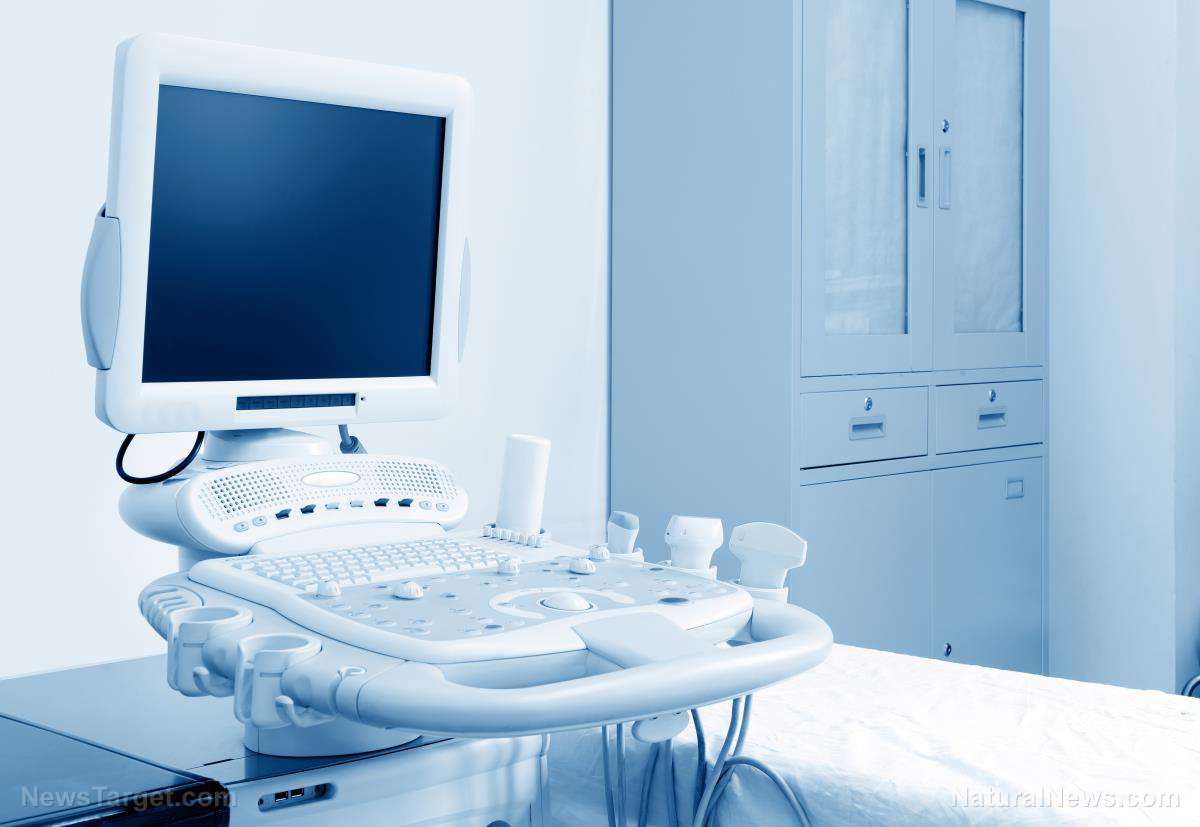Japanese researchers find that ultrasound therapy can be used to treat patients with dementia
11/20/2018 / By Edsel Cook

A new therapy based on ultrasound waves might be able to improve the cognitive powers of patients suffering from Alzheimer’s disease and other forms of dementia. According to an article on the Tohoku University news page, the approach improved the condition of mice with symptoms similar to human dementia.
In their experiment, the Tohoku University (Tohoku) research team sent low-intensity pulsed ultrasound (LIPUS) waves through the brain of the mice. They found that the waves improved the creation of blood vessels and the rate of regeneration of nerve cells.
Furthermore, the treatment did not cause any notable side effects on the mice. The results led the researchers to believe that they can replicate their experimental success in actual human patients one day.
“The LIPUS therapy is a non-invasive physiotherapy that could apply to high-risk elderly patients without the need for surgery or anaesthesia, and could be used repeatedly,” explained TU researcher Hiroaki Shimokawa. (Related: Study looks at the exact mechanisms of acupuncture in reducing cognitive impairment among Alzheimer’s patients.)
Are ultrasound waves capable of helping out dementia patients?
Dementia afflicts one out of every 160 people in the world. Every year, 10 million new cases appear, increasing the burden on society. Many of these cases are Alzheimer’s disease and vascular dementia, the two most common forms.
Despite their prevalence, there are no certified treatments for either form of dementia. This is due to the compact arrangement of the blood vessels that course through the brain.

The so-called blood-brain barrier keeps large molecules out of brain tissue. It is very difficult for most medications to reach the brain and treat conditions like dementia.
The Tohoku research team built their latest efforts upon findings from earlier experiments involving pigs with myocardial ischemia. The hearts of these animals suffered from reduced blood flow.
Other experiments demonstrated that LIPUS could spur the creation of proteins that play big roles in the survival and development of nerve cells. The affected processes include nerve regeneration.
Furthermore, subjecting the hippocampus of mice with dementia to concentrated LIPUS treatment greatly improved the behavior of the animals. The hippocampus is responsible for memory, among other things.
For the new study, Shimokawa and his teammates switched to whole-brain LIPUS treatment. They wanted to determine if it could work on mouse models of dementia. If it did work, they also wanted to find the means by which the therapy improved dementia symptoms.
A potential therapy for Alzheimer’s disease and vascular dementia
The Tohoku researchers applied LIPUS therapy to the whole brain of mice with symptoms that resemble those of Alzheimer’s disease or vascular dementia. They did this three times a day, with each session lasting for 20 minutes.
The mice that simulated vascular dementia underwent surgery that reduced the amount of blood that reached the brain. These animals underwent LIPUS treatment on the first, third, and fifth days after that surgery. Meanwhile, the mice that modeled Alzheimer’s disease got 11 LIPUS treatments over a three-month-long trial period.
By the end of the experiment, the researchers found that LIPUS activated genes involved with the cells that made up the inner lining of blood vessels. Furthermore, an enzyme that promoted blood vessel formation displayed increased activity, as did a protein which helped nerve cells grow.
Based on their findings, whole-brain LIPUS therapy can help alleviate the symptoms of certain forms of dementia by encouraging the development of cells that are normally affected by the condition. The technique is currently undergoing initial clinical trials that will determine its efficacy and safety.
Dementia.news can keep you well-informed on the latest efforts to prevent and treat all kinds of dementia.
Sources include:
Submit a correction >>
Tagged Under:
alternative treatments, Alzheimer's disease, brain function, brain health, cognitive dysfunction, cognitive health, dementia, medical tech, research, science and technology, ultrasound, vascular dementia
This article may contain statements that reflect the opinion of the author





















